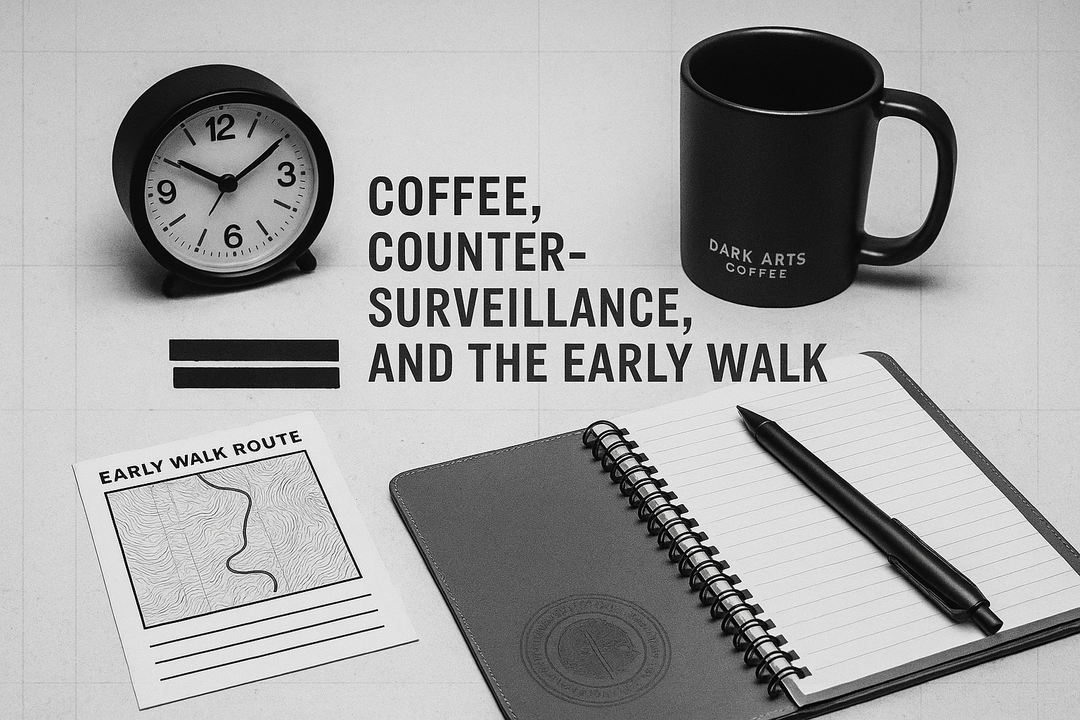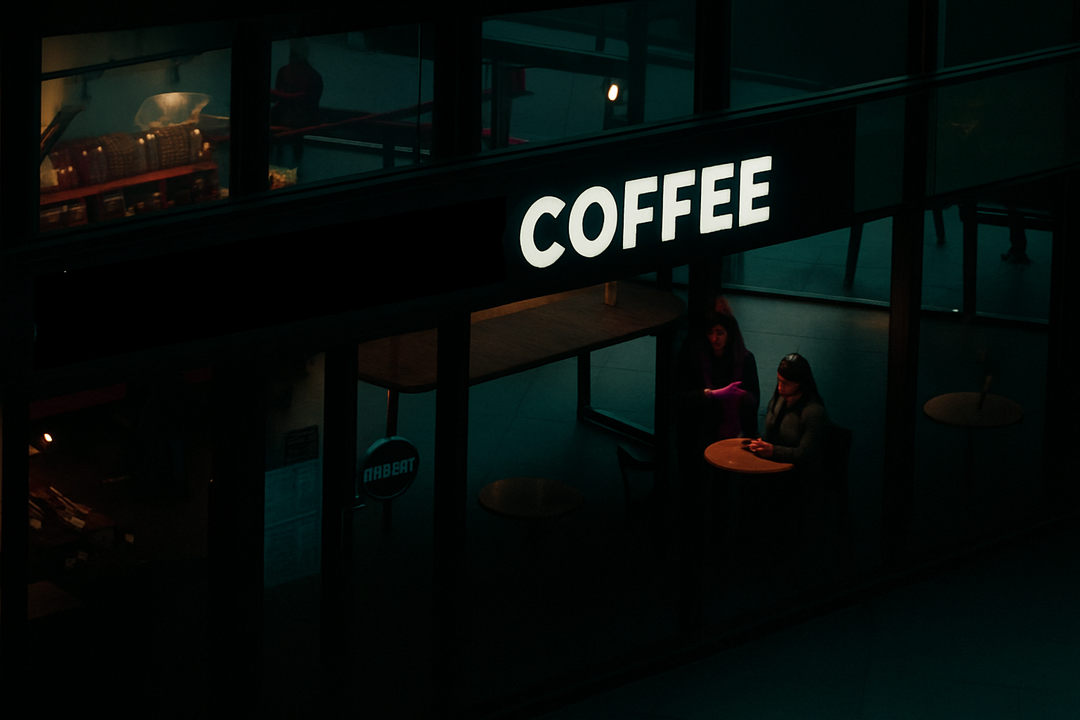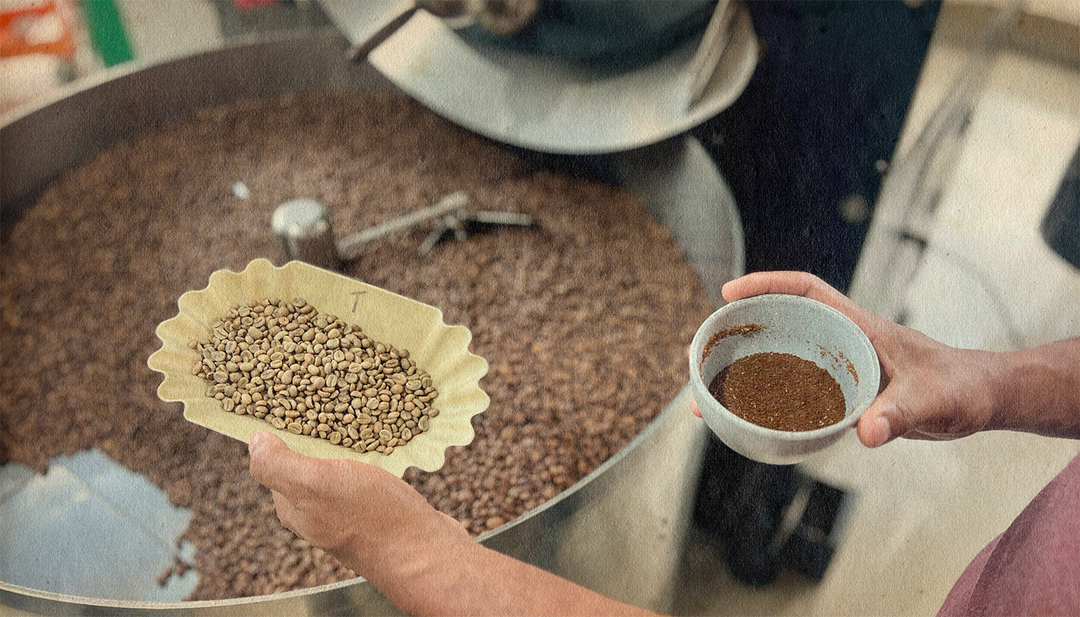Intel Briefing: Coffee, The Original Intelligence Booster
 You may not recognize the above photo. While just a rendition of an actual photograph, it's rumored to be famed coffee shop in a secretive building in a Virginia suburb.
You may not recognize the above photo. While just a rendition of an actual photograph, it's rumored to be famed coffee shop in a secretive building in a Virginia suburb.
In the shadowed corners of history, not every tool of espionage was forged in steel or silicon. Some were brewed. For the U.S. intelligence community, coffee was more than a beverage — it was a weapon of endurance.
By the mid-20th century, as the CIA expanded its global footprint, one constant followed officers from Langley’s hallways to field stations in Saigon, Kabul, and Berlin: an unrelenting supply of caffeine. Analysts could spend days parsing intercepted signals, interrogators worked through nights of psychological pressure, and case officers walked the tightrope of double lives. None of it happened without coffee.
In the early 1950s, coffee wasn’t just Guatemala’s lifeblood — it was a pressure point in global strategy. An astonishing 82% of the nation’s exports were beans, most bound for the United States. Intelligence analysts in Washington knew this dependence made Guatemala vulnerable, and they studied ways to curtail its trade. The document you see here — stamped with the language of covert planning — shows how coffee factored into Cold War calculations. What looks like economic paperwork was, in reality, an opening gambit in the shadows of U.S. foreign policy.

But even in the earliest days, coffee was a quiet force multiplier. While the public imagined glamorous tradecraft — disguises, encrypted radios, microfilm hidden in hollow coins — the real currency was alertness. A pot of black coffee in a dimly lit safehouse kept minds sharp when mistakes could mean blown cover or worse. The operational reality: sleep is negotiable, alertness is not.
A Liquid Ally in the Cold War
During the Cold War, the U.S. intelligence services faced endless watch shifts. Surveillance teams rotated through twelve-hour postings, listening stations in remote corners of the world monitored Soviet frequencies around the clock, and analysts scoured reams of intercepted chatter. Coffee became the quiet constant, its aroma weaving through fluorescent-lit basements and windowless bunkers.
One officer later recalled that the hum of tape machines was always matched by the hiss of percolators. Caffeine wasn’t just a comfort — it was the unacknowledged enabler of vigilance. Entire reports, decisions, and strategies were drafted under the accelerated heartbeat of dark roast.
Not Just a Drink, but a Ritual
Intelligence officers built ritual around their cups. A hand-rolled cigarette and a mug of strong coffee before an operation became a mental cue: it’s time to work. That ritual created consistency in a profession where almost nothing else was predictable.
Inside Langley, the breakroom wasn’t downtime — it was where off-the-record conversations happened, where analysts compared notes, and where whispers of actionable intelligence sometimes first emerged. Coffee fueled more than the mind; it fueled the network. It's even rumored that Langley has its own Starbucks.
This Starbucks is also unique in that its employees must undergo background checks and security screening. While they are not CIA agents themselves, baristas must respect the sensitive environment they operate in. There are no tips jars, no selfies, and absolutely no chit-chat about personal details. Even delivery drivers must be escorted in and out by CIA staff. (OSINT Source)
Yes, tucked deep inside CIA headquarters at Langley is one of the most unusual coffee shops in the world. It looks like a normal Starbucks, but this café operates under rules of secrecy. Baristas undergo security clearances, customers can’t give their names, and every latte is called out by order alone. Phones and cameras are banned, so no verified images exist. Yet this small space is always packed, fueling officers, analysts, and operatives with caffeine before they return to their missions. It is a reminder that even in the world of secrets, the daily ritual of coffee remains essential.
From Classified to Daily Life
Today, the same truth applies. Coffee remains the ally of those who push past ordinary limits — entrepreneurs chasing deadlines, athletes preparing for training, creators staring down the blank page. The CIA may never declassify just how many gallons of drip coffee kept the world from tipping into chaos, but the tradition remains: coffee as a stimulant of readiness, a small mission in every cup.
Dark Arts Coffee continues this legacy. Each roast is designed not only for flavor, but for function: clarity, focus, and the ritual of discipline.
Join the Briefing: Get the stories the history books leave out — the hidden ties between coffee, culture, and covert action. From here out, these briefings will be redacted for non-newsletter members. Subscribe to the Dark Arts newsletter and receive your next dossier directly.
Signed,
Jeezy Angleton
Dark Arts Coffee Co.



Yes we do sir.
Hi,
Just wondering if you have organic chemical free coffee beans? I have heard about the bad things in mainstream coffee beans and want to find some that do not have the possibility of that.
Jim
Leave a comment